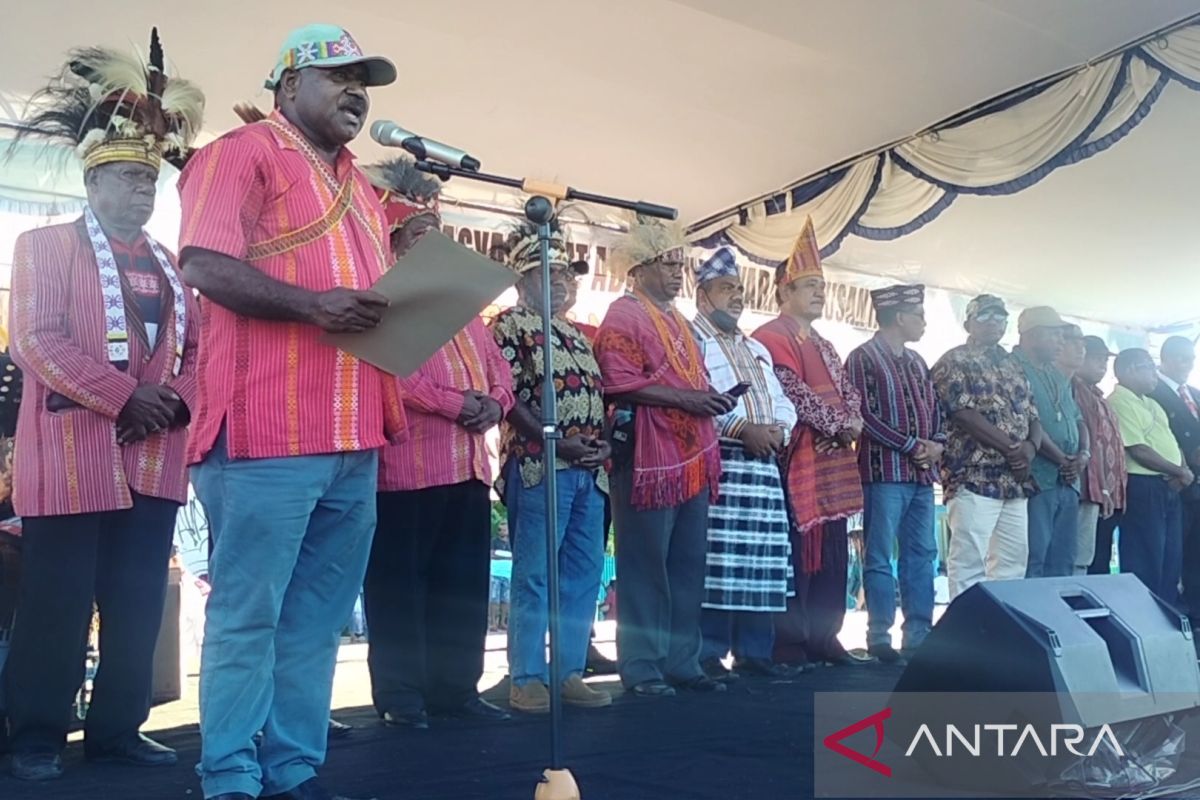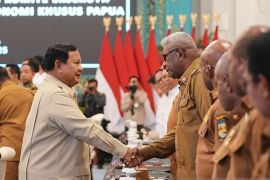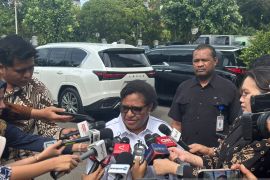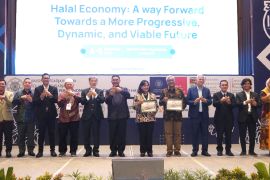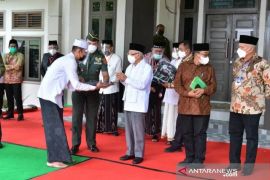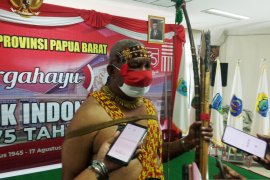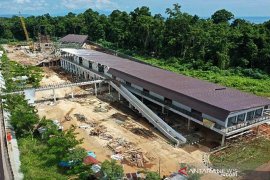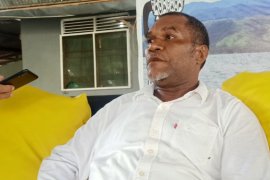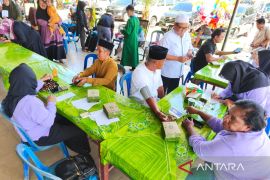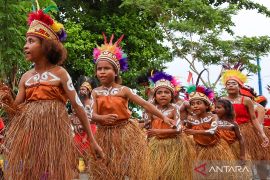This is good, and we are also seeing West Papua Province's interests in the futureManokwari, W Papua (ANTARA) - The support for the implementation of Papua special autonomy law and development of new autonomous regions would become a big hope for West Papua Province's future, acting West Papua Governor Paulus Waterpauw said.
He made the statement when receiving tens of native Papuan and non-native Papuan community leaders who visited him to express their support for the implementation of the Papua special autonomy law here Friday.
"This is good, and we are also seeing West Papua Province's interests in the future," Waterpauw said at the meeting with the local community leaders at his official residence in East Manokwari Sub-district.
Waterpauw, who replaced Dominggus Mandacan as the West Papua governor on May 20, 2022, said he did not deny the fact that a group of people still "reject" the special autonomy and development of new autonomous regions.
Related news: W Papua: Environmental education diffusing through conservation areas
However, the coming of tribal leaders and those representing communities, women, youth, and even West Papuan People's Assembly (MRPB) had brought a big hope for the future of West Papua Province, he said.
"The good things will be supported because the state must respond the aspirations of our people who demand equal distribution of benefits of development," he said.
Before meeting with Paulus Waterpauw, tens of native and non-native Papuan community leaders who join the "Alliance of Papuan and 'Nusantara' Communities for Special Autonomy and New Autonomous Regions" held a roll call at the Bosari Manokwari field.
On July 15, 2021, after several months of deliberation, the House of Representatives (DPR) passed a bill amending the Papua Special Autonomy Law No. 21 of 2001 into law at a plenary session.
Related news: MRP supports establishment of new autonomous regions in Papua
The special autonomy law has paved the way for a significant amount of funds to flow into Papua and West Papua.
Home Minister Tito Karnavian had earlier said that the provision of special autonomy funds must be extended for the two provinces by two more decades to boost sustainable development.
The ratified Papua Special Autonomy Law accommodates 18 revised chapters and two new chapters, according to the head of the House's Special Committee for Amending the Papua Special Autonomy Law, Komarudin Watubun.
The law has accommodated the need to regulate the privileges of indigenous Papuans in political, education, health, labor, and economic sectors, as well as to support customary communities, he said.
It offers more room to native Papuans to get involved in politics and in such organizations as the Papuan People's Assembly (MRP) and Papua legislative councils (DPRK) in districts/cities, he said.
At least 250 seats would be reserved for native Papuans in district- and city-level Papua legislative councils (DPRK). At the same time, 30 percent of the DPRK seats would be reserved for native Papuan women, he added.
Related news: Developing Biak to become international maritime hub in Pacific region
Related news: West Papua police tighten security ahead of W20, Y20 events
Translator: HA Kapisa, Rahmad Nasution
Editor: Fardah Assegaf
Copyright © ANTARA 2022
